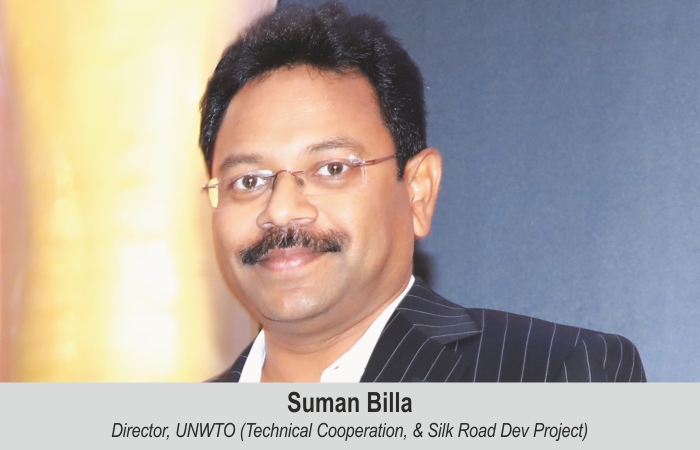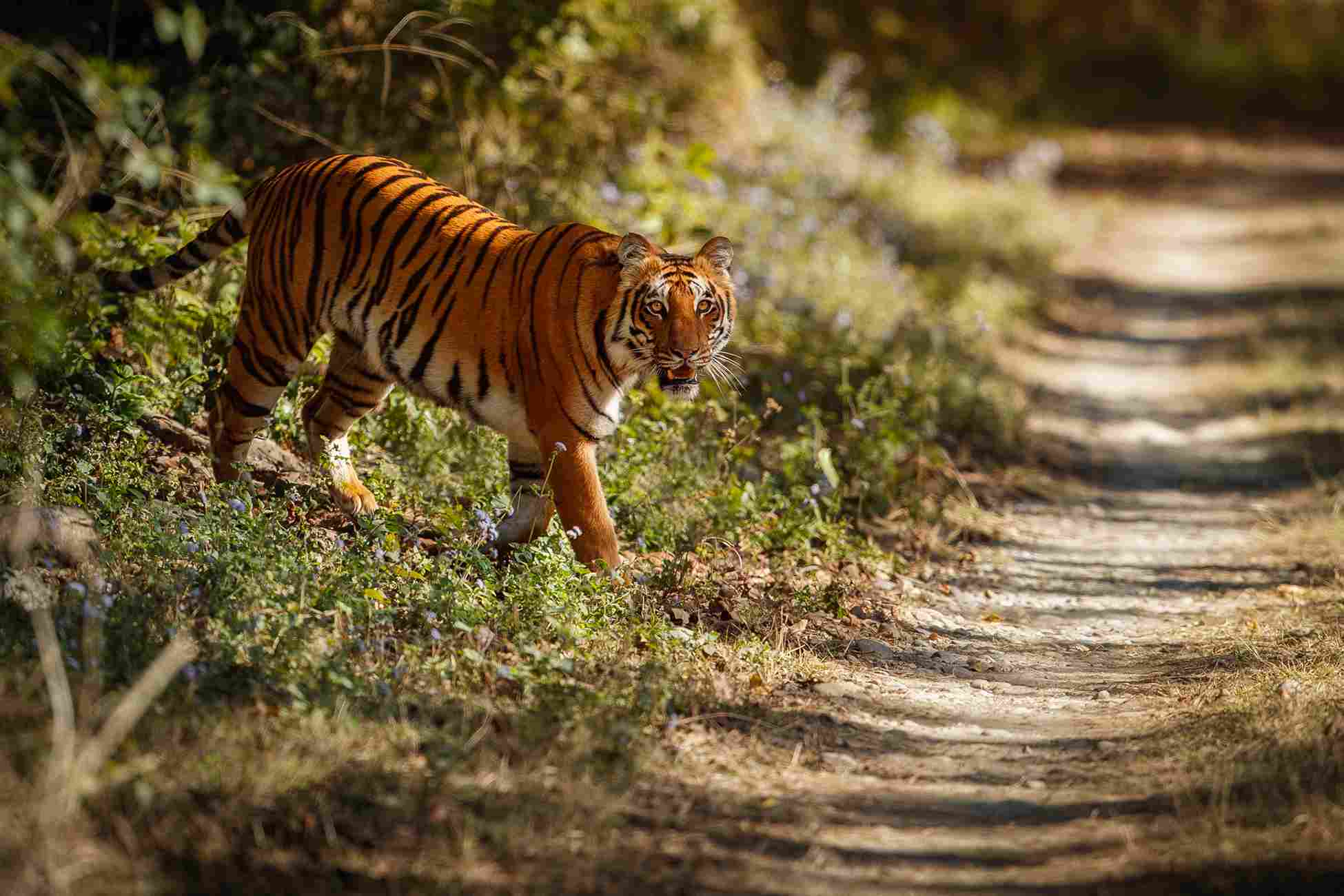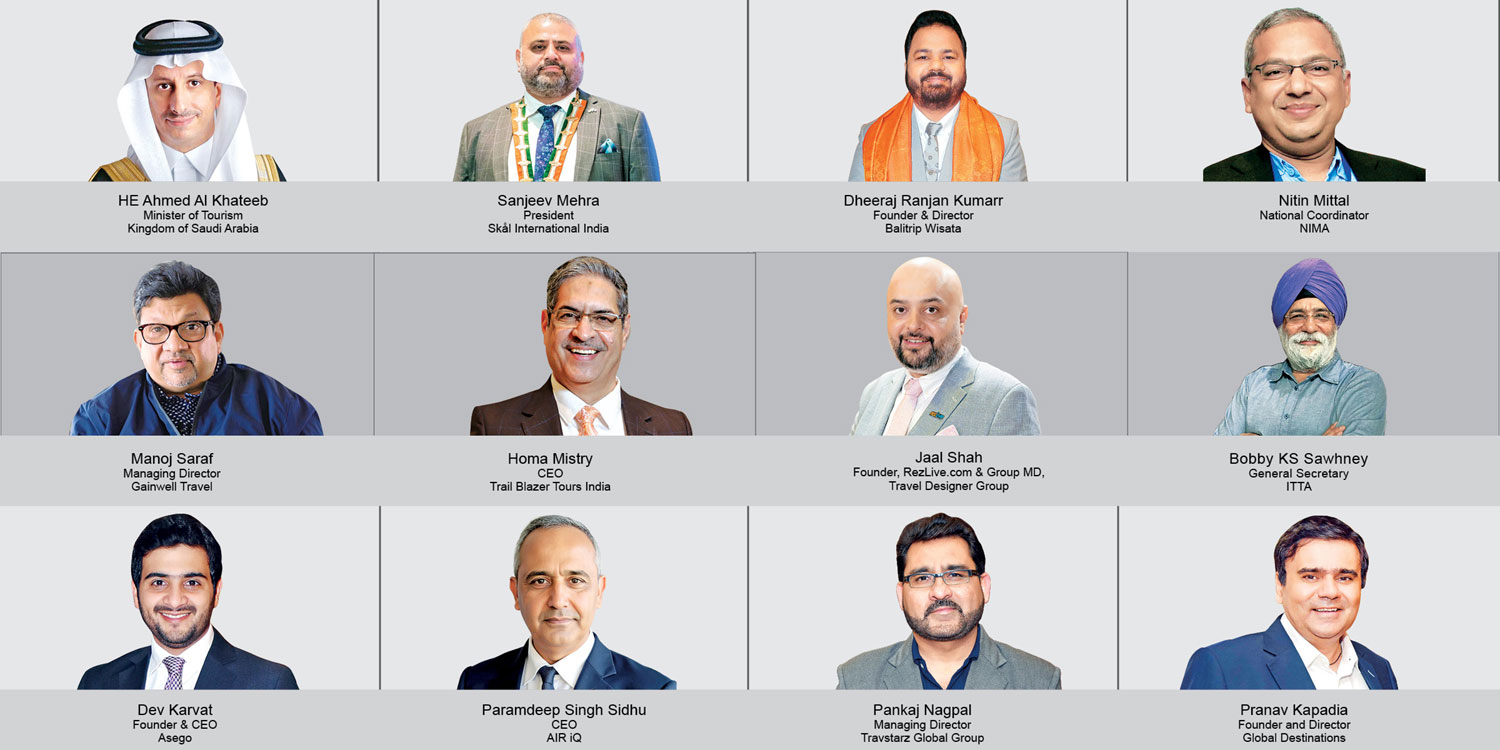The ever-evolving hospitality industry has seen some unimaginable ups and downs in the last year. What impact will this have on education and how have the opportunities evolved? TRAVTALK finds out more.
Neha Rawat
Sommet Education in collaboration with the World Tourism Organisation (UNWTO) hosted a virtual webinar titled ‘Hospitality Education in the Post CovidWorld’with participation from eminent industry leaders from across the globe. It had Adrian Artimov, Regional Director South Asia, Sommet Education; Suman Billa, Director of the UNWTO Department for Technical Cooperation and its Silk Road Development Project; along with Mandeep Lamba, HVS President of South Asia.
Suman Billa explains how hospitality sector is shaping up in the post-COVID world. He said, “In the year 2020 we saw international tourists drop by 76% which means that 1 bn people have travelled less in that year. In terms of tourism exports, we are looking at 1 trillion dollars less, and 100-120mn jobs lost in the tourism sector. This sector is essentially unprecedented and tourism sector is hardest hit, we hoped for an early rebound in 2021 but that plan is also delayed until everyone is completely vaccinated. At this point of time, tourism has come to a grinding halt and as and when its starts rolling, it will have a new shape to it. Tourism has seen some significant shift in the consumer preferences, more sustainable, responsible, authentic and meaningful experiences. The mass market as we know which high volume is and low profit business is going to be reduced. We are also seeing a concrete debate among most of the governmentsthat are channelling the changing consumer preferences in their policy frameworks and reconciliations. For the first time, we are looking at countries that want to move at zero carbon footprint. We are looking at hotels and restaurants looking at the zero carbon footprints and zero food miles. We are looking at the industry, showcasing the community itself not as a means of tourism but also as a way to make the experience more authentic. The trajectory of tourism is going to be different from what it was before. It is a great opportunity to hit the restart button and move forward to new beginnings. It’s a great chance for the Indian industry to reinvent its sectors.”
Billa also outlines some of the initiatives undertaken by UNWTO to help the hospitality education sector. He said, “During the pandemic, we were aware that there would be wide-spread job losses and people would be furloughed or we would have a situation where people would be partially employed. So we looked at providing them with online courses in order for them to use their time and enhance their skills to compete in a hyper-competitive market. The second initiative we undertook was the hospitality challenge in collaboration with Sommet Education; this is to see how we can identify ideas and individuals who can help in a faster recovery of tourism. The third element that is still underway is the Job Factory programme, which is a fair and free online marketplace for jobseekers and for their employers to short-list basis the skills they pertain. Basically to create a fair and easy market place that is being rolled out in conjunction with several governments across the world now.”
Speaking on the trends that are shaping the current hospitality sector in the post-Covid world, Mandeep Lamba said, “The sector is severely impacted. We did rebuild some occupancy in the beginning of 2021, and we were hopeful of picking up as hotels were booked for 60% in many places though the rates were highly deflated. However, the second wave has dampened our optimism. We are hoping to see a rebuild in occupancy towards the end of this year once the vaccination drive is spread more widely. We anticipate that by next year occupancy levels should return to normal, but the rates shall recover only by 2023. In terms of trends, the world is talking of revenge travel, and therefore travel shall definitely take an upward trend post-vaccination.”
Talking of how Sommet education responded to the changes in the hospitality sector due to Covid-19, Adrian Artimov said “It wasn’t easy and it took everyone by surprise. We were quite fortunate, since we are a hospitality management institute, we were already equipped with the skills to deal with such a crisis: agility and adaptability. We quickly switched to an online model, keeping our students engaged and that strong community vibe alive. We developed new online programmes in record time. We invested in technology so that the product delivery was there, and we also revamped our facilities to make Covid-free areas. We are happy with the outcome although the journey hasn’t stopped, and we need to continue together.”
 TravTalk India Online Magazine
TravTalk India Online Magazine





